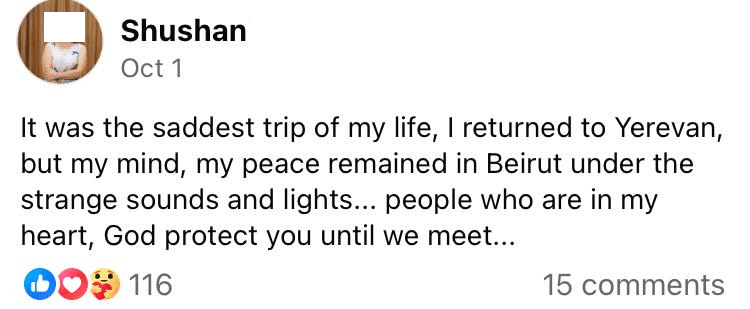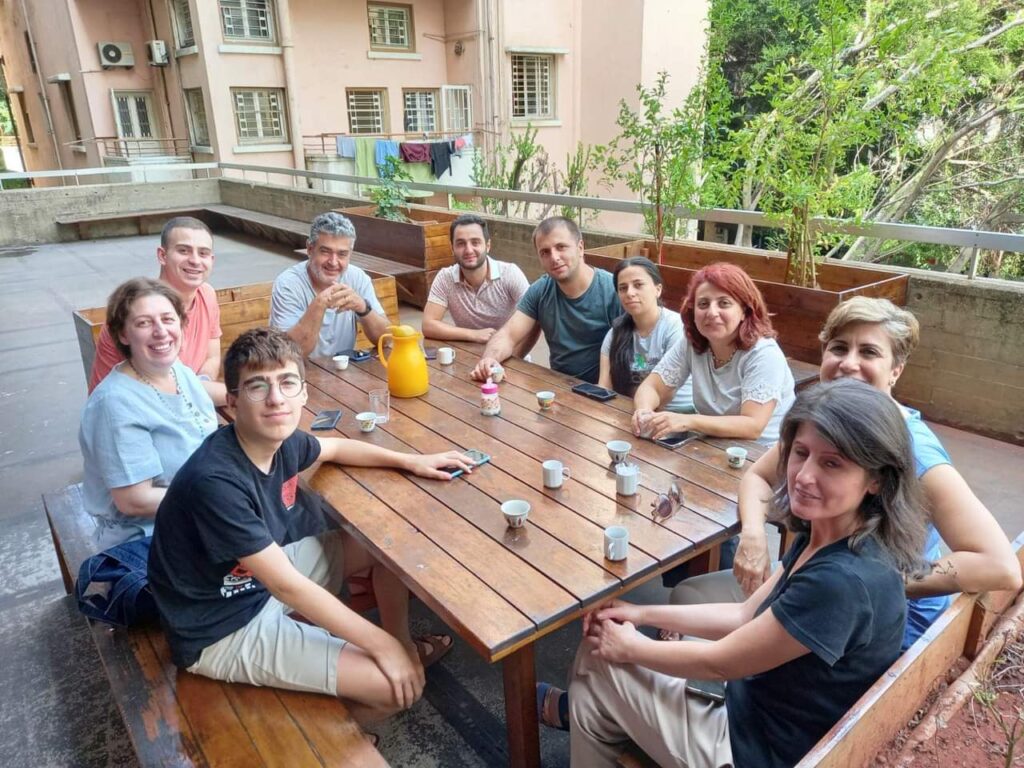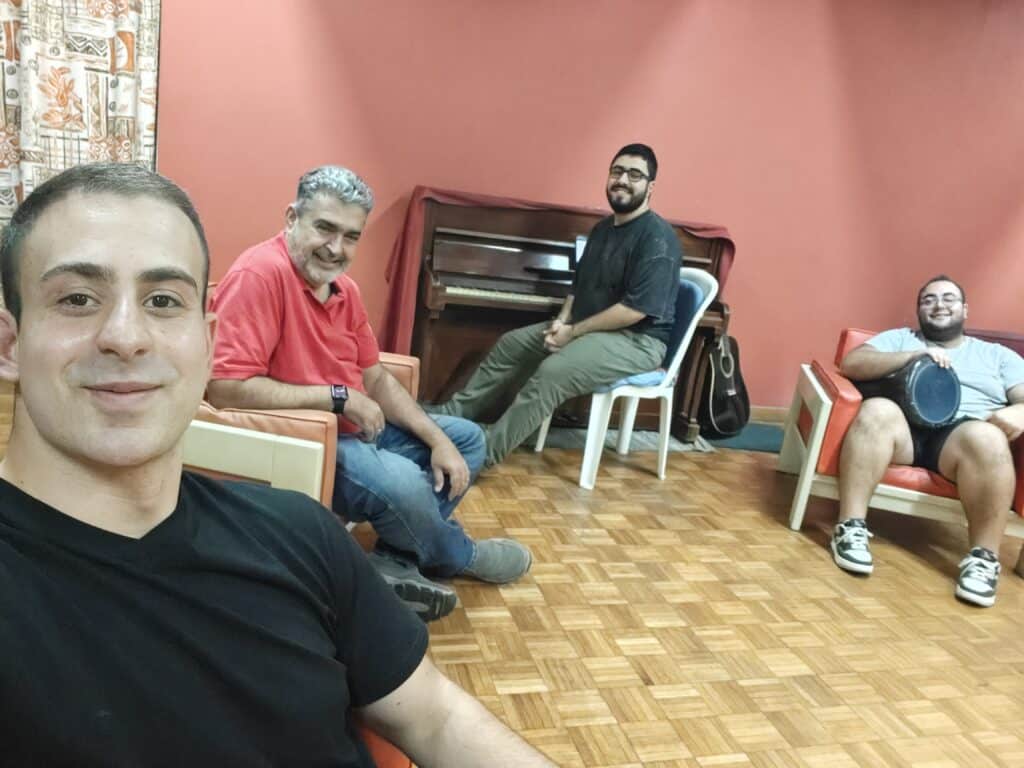Pray with the Middle East, December 29, 2024
Lectionary Selection: Luke 2:41-52
Prayers for the Middle East
Heavenly Father,
When so many of us and those around us are experiencing displacement; when our families, like the family of Mary, Joseph, and Jesus, have been broken apart, and our communities have gone through separation, some temporarily and some until the end of the present age; when all of us, near and far, are suffering from utter disorientation; when loss and grief eat at our bodies, souls, and spirits…
Grant us, O Lord, the joy of reunion and restoration; fill us with the hope of return … to place … to each other… to peace … to self.

When the possibility of return fills us both with joyful anticipation and with anxiety, with fear about who will still be there and about those we will never see again, fear concerning the destruction and loss that we will discover, fear about what the future holds when we have lost so much…
Yet there is hope, O Lord, for a new beginning, hope that we can rebuild persons and stones, families and communities, ourselves and our neighbors…
Protect us, O Lord, from a sense of hopelessness. Deliver us from this feeling of helplessness. Lead us from resignation to a place of active resilience. Then beyond that resilience, bring us to a place of growth, like Jesus, “in wisdom,” “in stature,” “in favor with God and fellow humans.” Cause us to grow, like Mary and Joseph, in the face of adversity.
Activate in us the courage and will to bring hope, growth, change, and transformation through your love and your wisdom through all the chaos, destruction, mourning, and death that seek to dominate our reality in the name of your resurrected Son, Jesus Christ our Lord.
Amen
Mission Moment from the Middle East
On Monday, September 23, 2024, in the middle of the afternoon, thousands of pager devices exploded simultaneously in the hands of their users, mostly Hezbollah operatives, but also their friends, family members, women, and children who happened to be at the wrong place at the wrong time.

It was a moment of chaos. Our children rushed out of schools. Ambulance sirens blared all over the city. Young men directed traffic to ensure rapid access to emergency rooms. Doctors, young and old, spent the next hours, nights, and days extracting eyes, amputating and sewing limbs and skin, and treating deep burns.
This moment of terror was followed by weeks of nightly bombing, daily missile assassinations, and the non-stop threatening buzz of drones overhead. A sense of psychological and territorial violation set in for weeks on end until (according to the UN peacekeeping force, UNIFIL) over 80% of houses in villages of South Lebanon were flattened to the ground, entire neighborhoods in the Beirut Southern Suburbs and Bekaa valley were wiped out, and over 1.5 million Lebanese were displaced all over the country.
The day before, on Sunday, September 22nd, I had been installed as the eleventh president of the Near East School of Theology. Hopes of leading NEST into a new season of growth, of filling out a vacuum of the church’s engagement in public life, had to be put on hold for a while. We worked on ensuring safety for our personnel, students, faculty, and property. Emergency plans and contingency scenarios were elaborated. Security was enhanced for access to the building. Our bomb shelter safety and integrity were reviewed. Food and water reserves and medical emergency kits were updated.
Some of our students and faculty have gone home or to safer locations. Our academic programs have gone online, and our distributed learning platform and bandwidth capacities have been expanded.

Then we turned outward. NEST’s mission is not only education but also hospitality: Education as Hospitality. We reached out to a neighboring shelter and assessed some of the needs of over 300 refugees. We are currently designing a “safe zone” for their children and youth, with psychosocial and educational support.
As our faithful and caring partners around the world call us to inquire about our safety, they find us going about our Master’s business. He is with the hurting and displaced. As our families and friends urge us to be safe and stay out of harm’s way, we respond: “Why are you searching for us?” “Didn’t you know that we have to be in our Father’s house?”
These are very difficult times, and we certainly are no heroes. We are afraid. We are filled with doubts about the future. We have lost trust in the international system. But in the midst of it all, we continue to grow “in wisdom and stature, and in favor with God and fellow humans.” You see, in the Home of God, adversity and suffering activate new strength and development, new hope, new vision for an alternative future. Thank you for standing with us through this growth process.
Written by Martin Accad, President, Near East School of Theology
Regional Partners in the Middle East
- Arab Group for Christian-Muslim Dialogue
- Churches for Middle East Peace
- Fellowship of Middle East Evangelical Churches
- Forum for Development, Culture, and Dialogue (FDCD)
- Middle East Council of Churches
- Union of Armenian Evangelical Churches in the Near East
Make a gift to support the work of the Near East School of Theology
